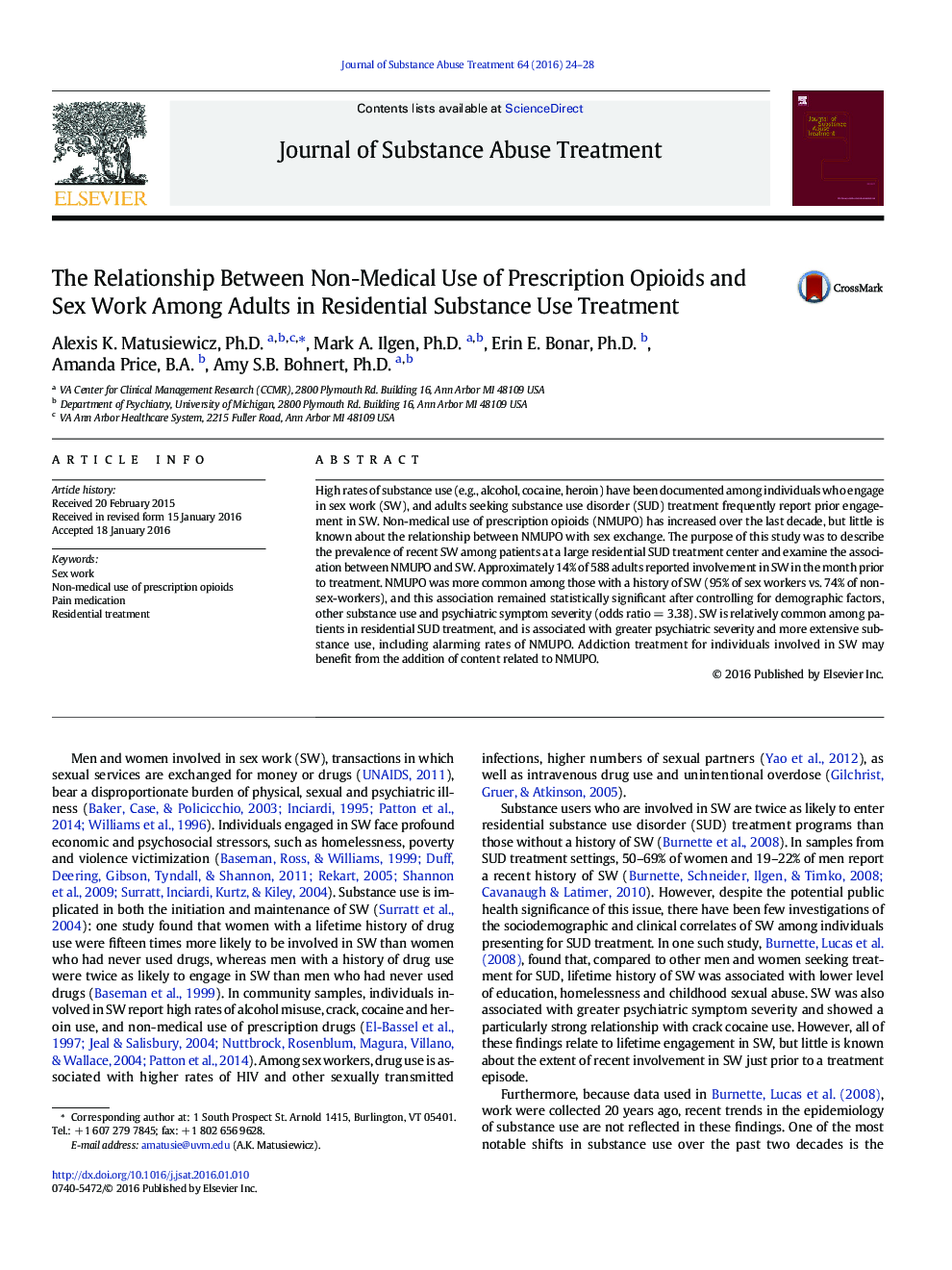| Article ID | Journal | Published Year | Pages | File Type |
|---|---|---|---|---|
| 329634 | Journal of Substance Abuse Treatment | 2016 | 5 Pages |
•Sex work (SW) is common among patients in residential substance use treatment.•SW among individuals in addictions treatment is associated with more extensive substance use and greater psychiatric severity.•Non-medical use of prescription opioids is widespread among individuals involved in SW.
High rates of substance use (e.g., alcohol, cocaine, heroin) have been documented among individuals who engage in sex work (SW), and adults seeking substance use disorder (SUD) treatment frequently report prior engagement in SW. Non-medical use of prescription opioids (NMUPO) has increased over the last decade, but little is known about the relationship between NMUPO with sex exchange. The purpose of this study was to describe the prevalence of recent SW among patients at a large residential SUD treatment center and examine the association between NMUPO and SW. Approximately 14% of 588 adults reported involvement in SW in the month prior to treatment. NMUPO was more common among those with a history of SW (95% of sex workers vs. 74% of non-sex-workers), and this association remained statistically significant after controlling for demographic factors, other substance use and psychiatric symptom severity (odds ratio = 3.38). SW is relatively common among patients in residential SUD treatment, and is associated with greater psychiatric severity and more extensive substance use, including alarming rates of NMUPO. Addiction treatment for individuals involved in SW may benefit from the addition of content related to NMUPO.
